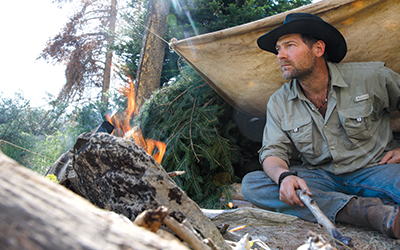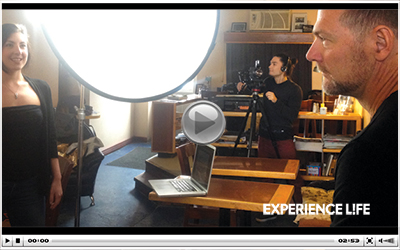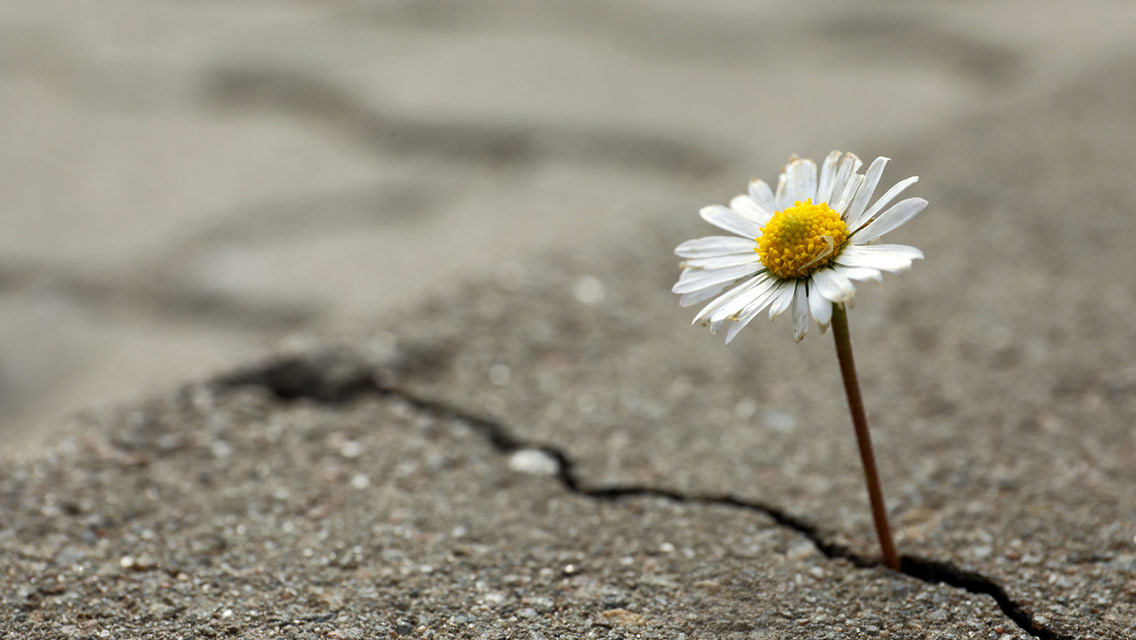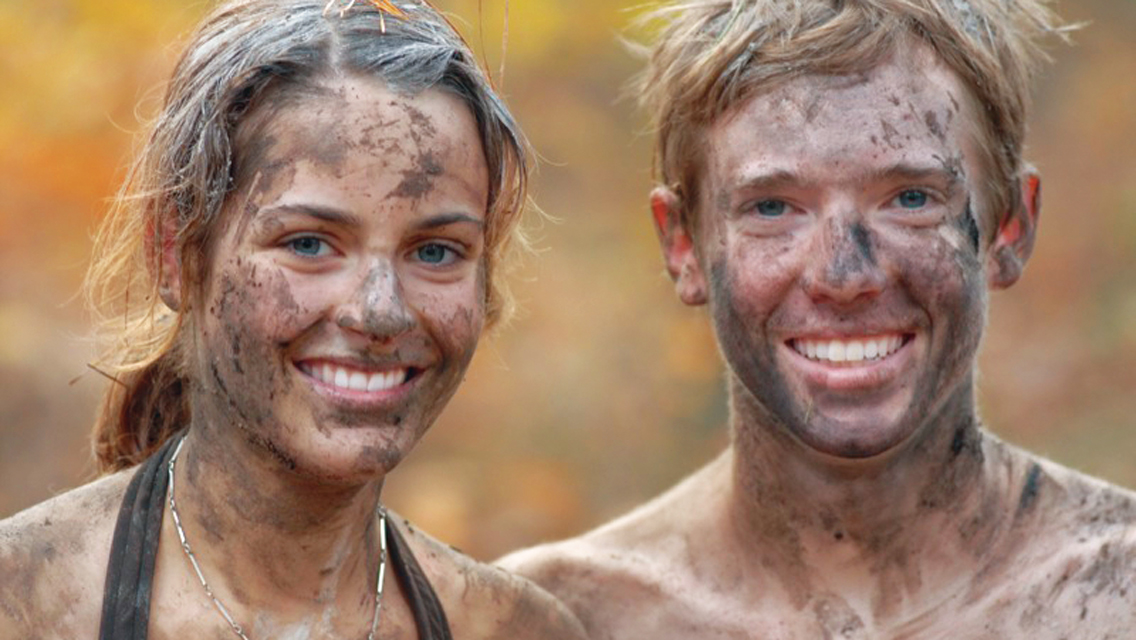In his mid-20s and on the verge of making it big as a singer and songwriter, Les Stroud had an early life crisis — prompted, in part, by a one-hit wonder.
“I spent a good 15 years trying to be a rock star, and I was doing well,” says Stroud, who is best known for his one-man nature survival shows on the Discovery Channel, Survivorman and Les Stroud Beyond Survival. “But then, in a comical twist, the music of the ’80s happened. And I hated the music of the ’80s. I often joke that I left music because of the Thompson Twins.”
Kidding aside, the wise-cracking Stroud, now 51, knew he had hit a turning point. “I was disillusioned,” he says. “But I didn’t know what else to do. I thought, ‘Well, if I don’t do music, now what?’”
The answer came to him in a flash of inspiration: He wanted to be outdoors, something he had loved as a young boy living in Ontario.
Stroud enrolled in a wilderness survival course in Toronto and soon began leading groups of people on adventure trips. After a few years of working as a guide, Stroud decided to marry his newfound passion with the performance and production skills he’d honed during his rock-’n’-roll career (he also worked on creating music videos) to create the TV show Survivorman. In each episode, Stroud ventured deep into the woods alone, without food, shelter or fresh water, and found ways to survive for seven days.
The show was a hit, and in the wake of Stroud’s small-screen success, everything has come full circle. He’s living in northern Ontario and exploring music again. He’s performing and touring with his band, Les Stroud and the Pikes (a CD is coming this spring); his third nature-centered book (coauthored with Laura Bombier), Beyond Survivorman (Harper Collins), comes out later this summer; and he will begin filming Survivorman & Son in the fall, a new TV series in which he introduces his 15-year-old son to the art of survival.
“He doesn’t know what he’s in for,” Stroud says, chuckling. “I think he’s just in it to get girls.”
Experience Life | How did you first become interested in nature and
survival skills?
Les Stroud | It was an early life desire. I grew up watching television in the ’70s — Jacques Cousteau and Tarzan movies — and I absolutely loved it. Then I would go to the [family] cottage and I’d make little shelters and play. I really came by my love and passion for wilderness quite naturally.
EL | Les Stroud Beyond Survival has very high ratings in the United States. Why do you think the show resonates with so many people?
LS | It’s multilayered, I think. Partly, it’s fun to watch this guy — me — struggle. I also think it touches on some core, primal fears that we all share: What if I had nothing? Would I be OK? Could I survive all alone in nature if I had to?
I also get a lot of emails from people saying things like, “You got me through eight months on my back in a hospital bed,” or “You brought my son and me back together again,” or “I got out of an abusive marriage because of your show.”
How the heck is this show about fireballs and shelters doing stuff like that? I think it’s because I always try to tell the truth: If some aspect of our days on the show was really rough, I just acknowledged it: “Well, this sucked, but I’m going to try to stay positive and get through it.”
It’s not about commiserating. It’s not about creating and capitalizing on the misery so we can all go, “Yeah. Forget about being positive; everything is terrible!” It’s just about being honest in the moment. And I think that resonates with people when they see it.
EL | What’s the biggest myth about survival?
LS | That it’s fun. There’s nothing fun about it. Survival is very demanding. You just want to go home. People watch my show and they think, “Oh, this looks like a fun activity.” And for those of us who love the wilderness and all the little geeky survival tricks, it can be fun sometimes. But, in general, survival for real sucks. So, to me, a very vital skill set is navigating and knowing how to get yourself home.
EL | What do you consider the top survival skill — something everyone headed out into the woods should know?
LS | I think that the No. 1 thing is the ability to get a fire going anywhere, anytime, under any circumstances. I don’t care if you’re in the jungle, the desert, it’s hot or it’s cold, you always need a fire and you always need a fire at night; the ability to get that fire going is critical. The measure of a good guide is one who can get a roaring fire going under a big, ugly blue tarp for his clients after four days of solid rain.
EL | What have you learned about yourself through your adventures
in nature?
LS | It’s been a journey for me. When I was making Survivorman — let’s say around season three — it became more of a business than anything else. Money became part of the discussion all the time. By the end of that season, I realized I had lost my spiritual connection to the earth.
When I was out there, often I’d be in the most beautiful places on the planet. But I was conducting business. I had a show to film. I was there to survive for the camera. So I’d finish a trip and realize that I’d missed the spiritual connection.
When I started making the series Beyond Survival [the TV show that followed Survivorman], it was all about reconnecting with the earth. I would partake in ancient ceremonies around the world with aboriginal people, and I felt like I regained this intense connection to the earth. Survival can give that to you in a big way when you let it.
EL | How can the average person regain his or her connection to the earth — short of spending a week alone in the Arctic?
LS | I really just want people to take their shoes off and walk in the grass. They can do that at the park at the end of the street. They don’t have to go to the jungle like I do.
When I lived in Ontario I used to walk my dogs in the tiny little ravine underneath the Gardiner Expressway, but as far as I was concerned, I was in the northern version of the Carolinian forest. The creek was polluted and there were no fish, but I was looking at the plants and I was walking my dogs; I was experiencing nature and getting that experience however I could. That’s what I think people need to do.
You can just start with hiking in your neighborhood. And if you have children, let them get dirt under their fingernails. Let them get out there and get muddy.
The health of our species requires that we get back in touch with the earth and feel that energy again.




This Post Has 0 Comments